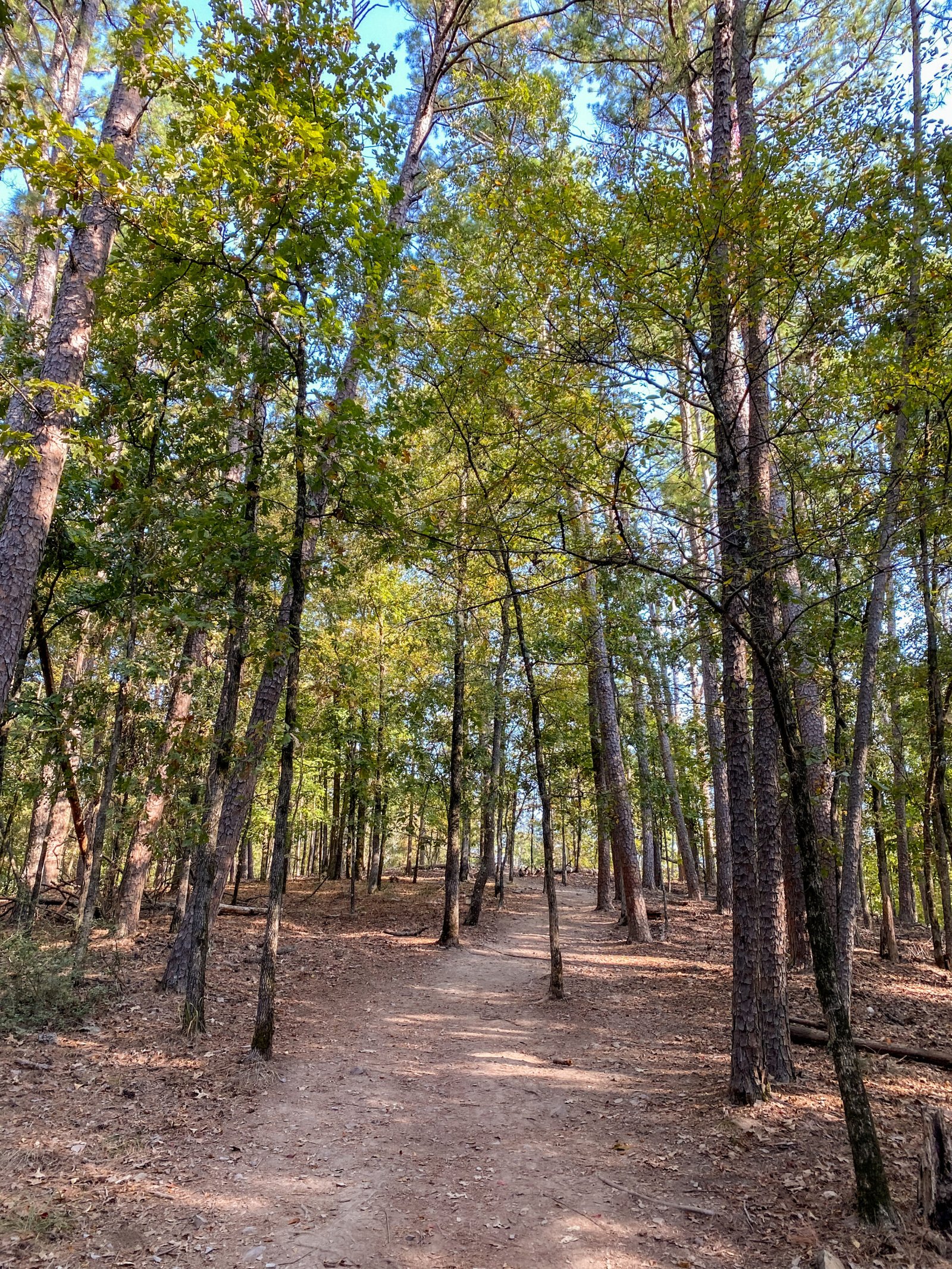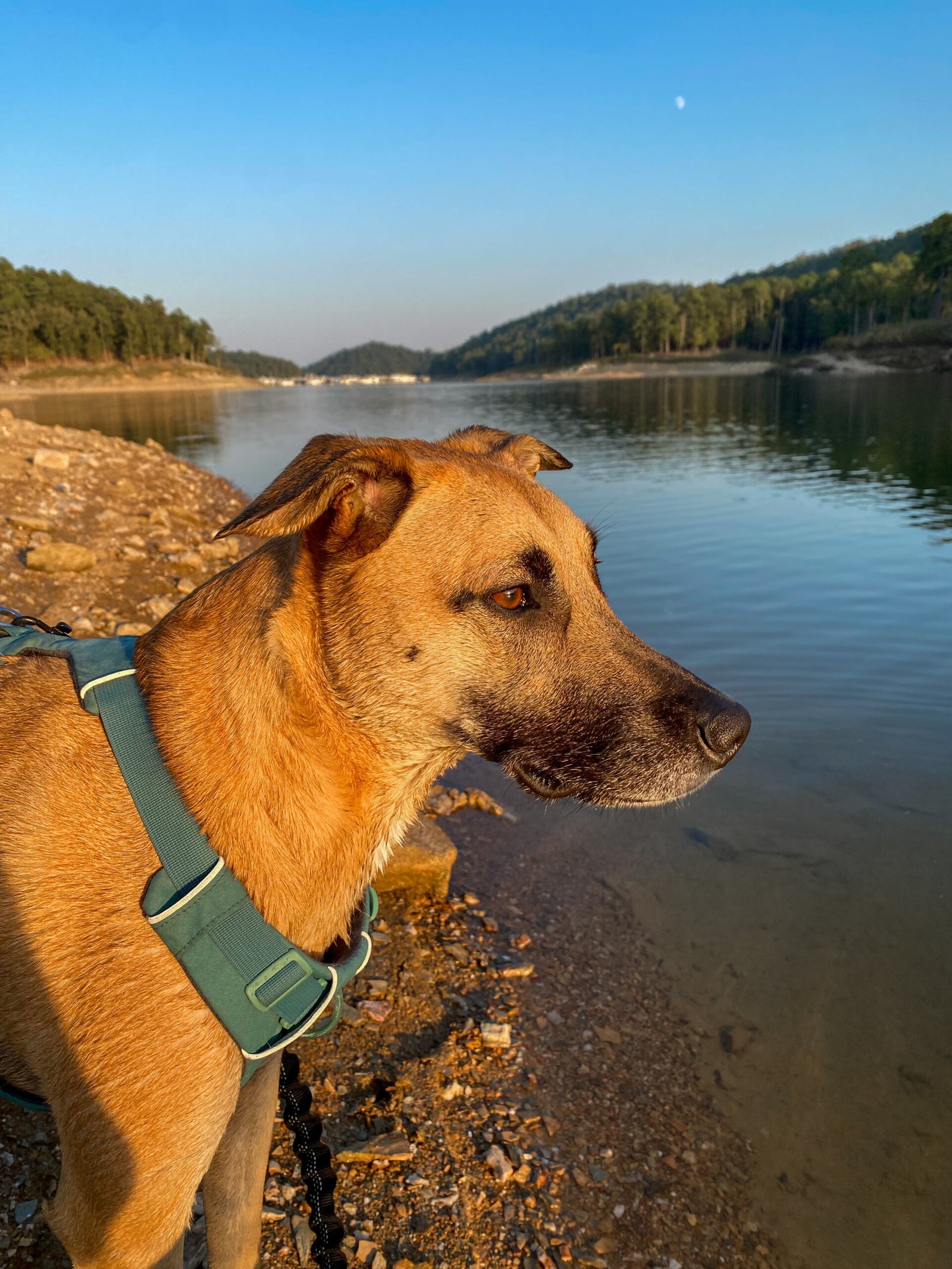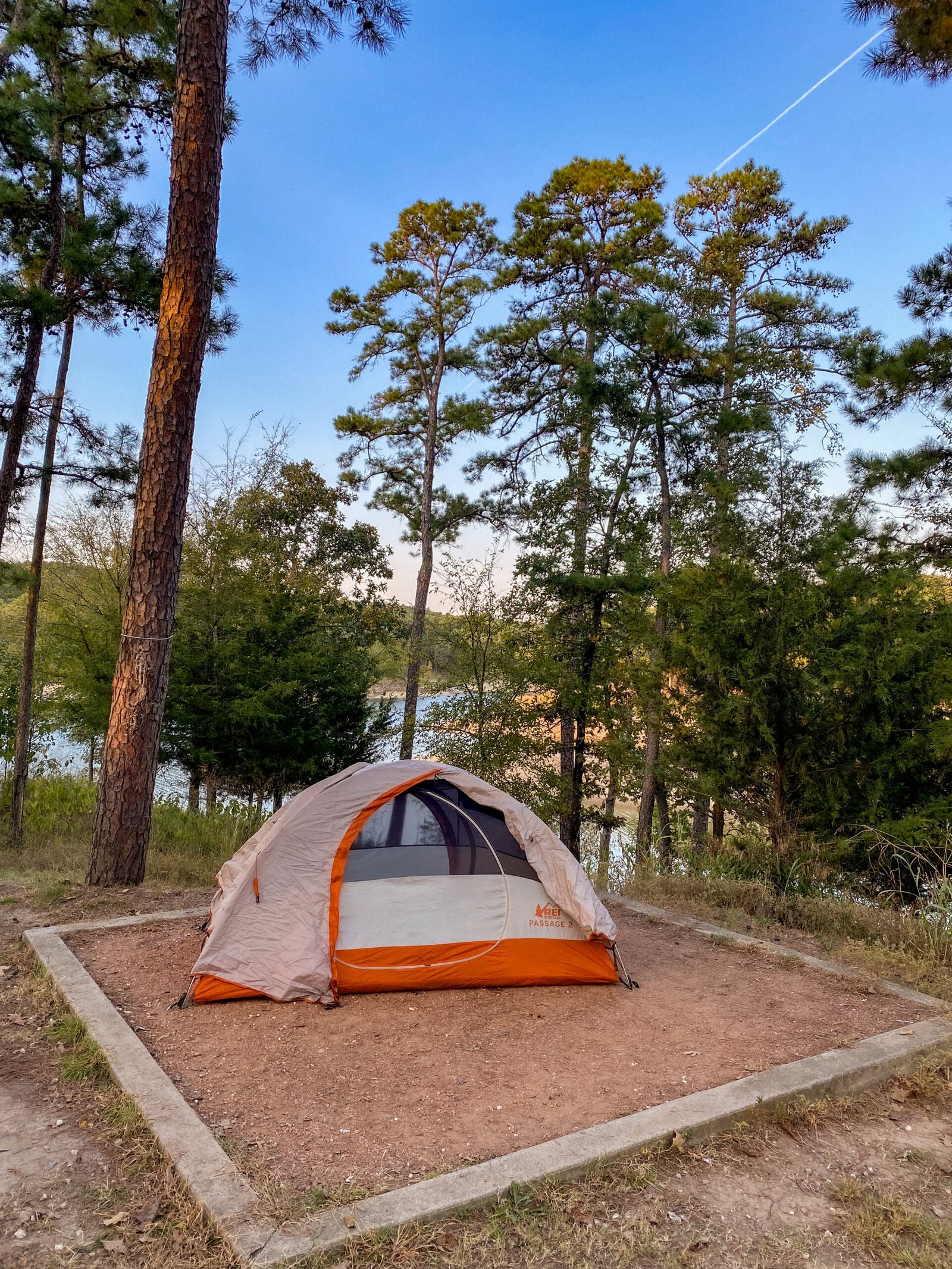Camping is a great way to escape into nature and from the demands of daily life. Following basic safety precautions while camping is important for a stress-free experience. If you’re new to camping, safety may be top of mind as you prepare for your trip. You might be unsure of what to expect or how to best prepare for a safe adventure. In this post, I’ll share 5 camping safety tips to help you enjoy a smooth and worry-free outdoor experience.
Camping Safety Tips for Beginners

Plan Ahead
Research the campground
Always research the area you plan to camp in to get a sense of the environment and assess any potential safety concerns. Look for information about past issues, such as reports of suspicious individuals, assaults, or wildlife encounters. You can look on Google Reviews, Reddit, outdoor forums, and social media for warning others about specific incidents along popular trails where people have reported encounters with concerning individuals. Being aware of these types of warnings can help you decide if you need to adjust your plans for a safer experience.
Tell someone trusted where you’re going
Before heading to a place where you may not have cell reception, make sure to inform at least two people about your plans. Let them know where you will be staying, how long you will be gone, and when you will return. This is especially important if you will be camping alone.
Camping Conditions
Research the expected weather on your trip so that you can prepare for the conditions. Additionally, if you are unfamiliar with the area, research plants and wildlife to be aware. It is best to know how to handle wildlife encounters, as well as what to do if coming into contact with plants that can cause allergies or skin reactions.
Be Prepared
Pack enough water for the duration of the trip
Bring more water than you think you will need. It is also important to have a plan for obtaining more water. This is especially important if you’re camping in the backcountry or at a remote location with no potable water. You will need drinking water, water to cook with, and to wash dishes with.
A few of the signs of dehydration are dizziness, headache, muscle cramps, dry mouth, fatigue, and infrequent urination. When you’re camping, hiking, and otherwise exerting and exposing yourself to the elements, drinking enough water is important to prevent dehydration, especially in warmer weather!
Pack essential safety gear
While camping, make sure to have essential camping gear. Examples of important safety gear to have on hand include:
- First Aid Kit: Ensure you have a fully stocked kit with bandages, antiseptics, pain relievers, tweezers, and any personal medications. I recommend adding an antihistamine as well in case of coming into contact with any new plants or insects that are allergens.
- Navigation: Have an option for an offline map. You don’t need to bring a physical map and compass, but in the event you lose service, be sure you have a way to access downloaded maps and are able to charge your device.
- Sun Protection: Always have sun protection on hand while camping. Examples of sun protection are sunscreen, lip balm with SPF, sunglasses, and hats. Sun exposure can lead to sunburn, dehydration, and heat exhaustion. Proper sun protection helps you stay comfortable and safe outdoors.
Prepare for the weather
When camping, preparing for the weather is one of the most important steps you can take to ensure a safe and enjoyable trip. Start by checking the weather forecast for the days you’ll be out, including nighttime temperatures, as they can drop significantly even in warmer seasons. Bring clothing layers to adjust as temperatures change, and pack a waterproof jacket and extra socks in case of rain. If snow or cold weather is a possibility, ensure you have insulated gear, such as a winter-rated sleeping bag and thermal clothing.
Use Proper Food Storage
Proper food storage is essential while camping since food and other scented items can attract wildlife. Be sure to never store food or scented items in your tent, and pack up food each night before going to sleep. If your campground provides them, bear lockers are the best place to store food and scented items. If you’re staying near your car and bear lockers aren’t available, store food and scented items locked in your vehicle, out of sight, with windows rolled up. Animals can still smell food inside cars, but it is a safer option than keeping it exposed or inside your tent.
If you’re camping in the backcountry or away from your vehicle, use a bear canister and store it at least 100 feet from your campsite. Additionally, set up your “kitchen” area at least 100 feet from your sleeping area, following the “triangle method” to minimize the chances of attracting animals to your tent. For more tips on safely using bear canisters, check out this helpful guide from REI.
Follow Fire Safety Protocols
Following fire safety while camping is important to protect yourself and the environment. A few tips when it comes to tending to a fire include:
- Always build your campfire in a designated fire ring or pit, and avoid starting fires during windy conditions, which can cause sparks to spread.
- Keep your fire small and manageable, and never leave it unattended.
- Always have a bucket of water or shovel nearby to quickly extinguish the fire if necessary.
- When you’re ready to put out the fire, douse it thoroughly with water, stir the ashes, and add more water until the fire is completely out and the area is cool to the touch.
Carry Protection
Carrying protection when camping is an important part of ensuring your safety, especially if you’re camping in remote or unfamiliar areas. Carrying personal protection items can provide peace of mind and help you respond to potential threats. I recommend carrying at least two options. Examples of personal protection items that you can carry are:
- Quality multitool or knife: Knives and multitools serve a useful purpose in the camp, as well as for protection. They are easy to keep on you, or next to you at night.
- Bear spray: Can be used on people or animals (like bears). Bear spray is a great investment, especially if you are located somewhere where bears populate. Always keep the bear spray somewhere that is accessible, especially if you are hiking or camping alone in the backcountry.
- Mace: While bear spray is generally more effective than mace, carrying mace on your keychain doesn’t hurt for added peace of mind.
- Taser: A Taser is another option for personal protection, providing a non-lethal way to defend yourself if needed.
- Hatchet: If you’re planning to build a fire, a hatchet is a useful tool for cutting wood and can also double as a protective item if kept easily accessible
- Gun: If you choose this option, make sure you have the proper permits, are familiar with it, and know how to use it.
- Air horn: An air horn is a great tool for scaring away animals or alerting others if you need assistance, providing both a deterrent and a signal for help in an emergency.
Frequently Asked Questions
Is camping safe?
Camping is generally a safe and rewarding activity. Like any outdoor adventure, it does require preparation and awareness of potential risks. By following proper safety practices, you can significantly reduce the chances of accidents and make your camping trip much more enjoyable. Be sure to practice situational awareness, and follow the camping safety tips outlined in this post to minimize potential risks while camping.
Is it safe to camp alone?
I have camped alone many times and have always felt safe and secure. Like anytime you’re traveling alone, especially as a woman, you’ll want to practice safety precautions. Never let strangers know you’re alone (both while camping and on social media). Remain in contact with family and friends, or at minimum let them know your plans and when you will be checking in. Carry some form of protection and use situational awareness. It doesn’t hurt to bring your dog (if you have one) as well!
How do I minimize safety risks as a beginner camper?
If you are new to camping, I would recommend minimizing all potential risks. As a new camper, you’re going to make mistakes and learn a lot. Go to a developed campground with showers and a bathroom (State Parks are a great start!). Be sure to go somewhere close to a town or store, rather than in a remote location. It’s better to camp for your first time closer to home in case you need to leave or forget something at home. Last, be sure to go with other people. If you go with a group that has camped before, that is even better!
Camping Safety Tips for Beginners
Camping offers the opportunity to unplug and immerse yourself in nature. However, it’s important to approach it with a focus on safety. By following these essential camping safety tips, including researching your campsite, packing the right gear, and preparing for potential challenges like weather or wildlife, you can minimize risks and enhance your overall experience. By being proactive about safety, you can fully enjoy your time and minimize potential risks. I hope these camping safety tips helped plan your first camping trip. Happy camping!
Are you a seasoned camper, or do you have more safety tips that weren’t included in the post? Let me know in the comments below!
Looking for camping inspiration? Check out my Instagram @thehomebodycamper!


Leave a Reply